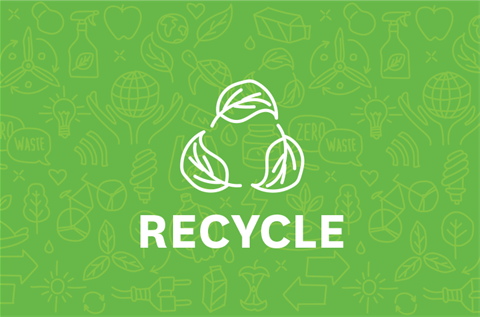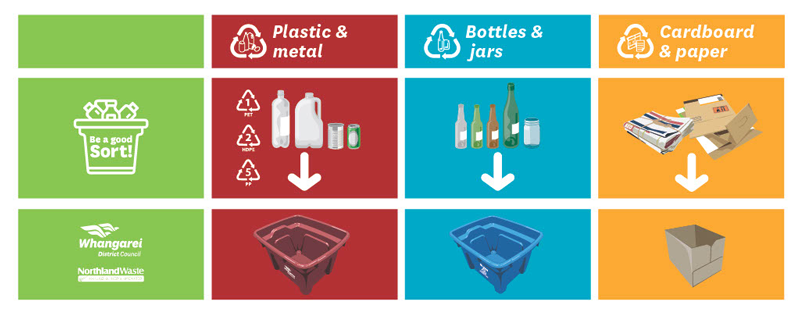Recycle

Recycling reduces the amount of raw materials needed to produce the new products that we consume.
Recycling reduces the waste sent to landfill, saves you money in disposal fees, and helps save the planet!
What can I recycle in my kerbside collection?
- Put plastics numbered 1, 2, and 5, aluminium and tin cans into your red bin.
- Use your blue bin for glass bottles and jars of all colours.
- Paper and cardboard should be flattened and put in a small box or paper bag.
You can also recycle the above items for free at your local rubbish and recycling centre and ReSort.
Printable kerbside recycling guide(PDF, 693KB)
Clean and sort items before recycling
- Clean items first so they don't contaminate the recycling process.
- Remove lids. Lids are too small for the recycling sorting equipment.
- Sort items correctly.
Recycling other household items
Use our recycling and disposal guide to help with the reuse, recycling and safe disposal options for everyday products and household items.
A to Z recycling and disposal guide
The diagram below shows what can be recycled in your kerbside collection.
